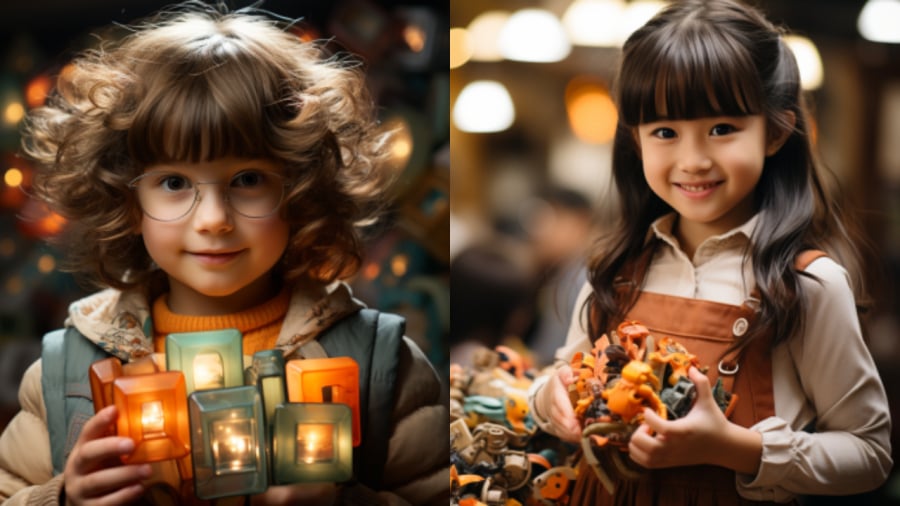Children show gratitude
A child with high EQ knows how to show gratitude for what they have. When they say thank you, children understand why they do so, not just out of habit or politeness.
Children adapt well to changes
Not everyone is easy to adapt to changes, especially when the changes do not go as desired. But if a child can adapt easily, it means that they have learned a key element of emotional intelligence.
To develop this ability, parents can also be examples for children on how to cope with crises or unexpected situations.

Speak less negative words and always think positively
Children with high EQ often speak positive words and convey that energy to others. When feeling bad emotions, they know how to hide them so as not to affect unrelated people. In particular, they will not easily lose their temper with their loved ones.
Children feel comfortable saying “no”
High emotional intelligence gives children the ability to establish and enforce personal boundaries. They are willing to say “no” to refuse and maintain reasonable limits.
Take on the role of mediator in friendships
Mediation skills also indicate a child with a high EQ. To mediate their friends’ difficulties, besides speaking skills, children also need the ability to empathize and share with those around them.
Children like this can become ambassadors of peace for their friends.

Curiosity
A curious child not only has a high IQ but also a relatively high EQ. Curiosity helps children understand more about the world around them. Children are attracted to stories about how people overcome difficulties and challenges. Parents should also encourage children to continue doing so.
Attentive listening to others
Children with high EQ are good at listening to others and observing more. This shows that children respect others. This is also a premise for better communication. In human communication relationships, listening is important and cannot be ignored.
If a child knows how to listen quietly to others without interrupting, it shows that the child has a high emotional intelligence.

Children consider from others’ perspective
A child who can stand on others’ standpoint to see issues often has the ability to grasp, empathize, and handle conflicts peacefully. This habit is very necessary for children’s future lives.
Children like this often judge others less, recognize the value of differences, comfort and support those in need, and speak up for those who are harmed.
Children self-regulate behavior
Children with high EQ have the ability to control their behavior and minimize the ability to make those around them uncomfortable and annoyed. For example, they know that if they skip dinner, their mother will be sad, or if they hit a friend, the friend will be hurt…
Learning Tips for Parents: 12 Japanese Techniques to Use with Your Children
Discover the 12 principles of teaching children in the traditional Japanese way that parents can learn with Dien May XANH! By instilling these principles when your children are young, you can ensure that they grow up to be obedient, smart and polite, the hallmarks of a successful education in Japan.



































